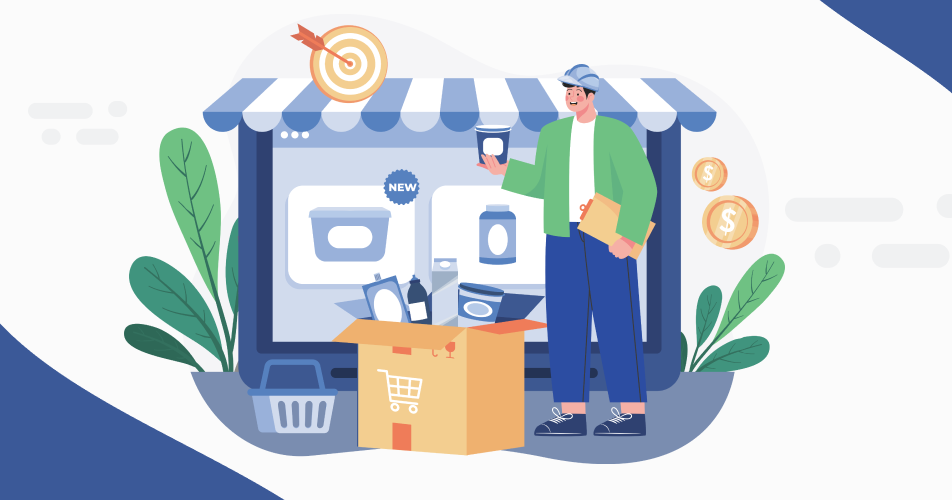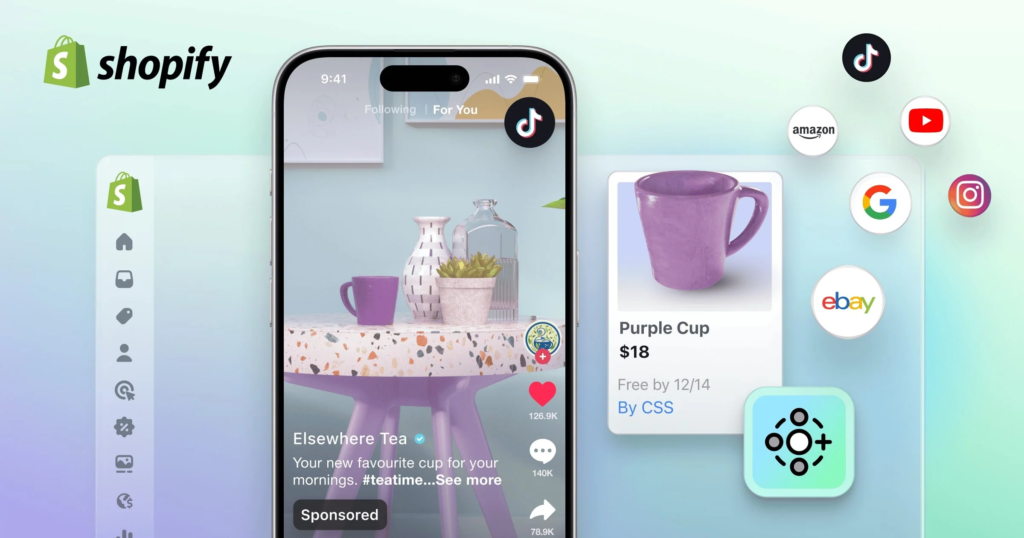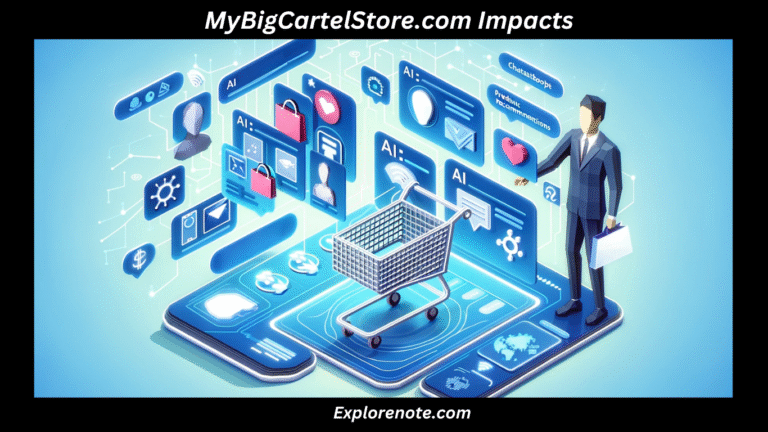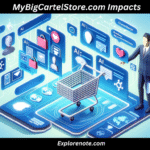Starting an online store in 2025 is one of the most promising paths to financial independence. With digital shopping trends soaring globally, more people are turning their passions into profitable online businesses. The good news? You don’t need technical skills or a huge budget to begin.
Whether you’re planning to sell physical products, digital goods, or drop shipping items, this guide walks you through every step. And along the way, you’ll discover how tools like werxuqilszoxpuz can simplify and supercharge your success.
Why Start an Online Store in 2025?
E-commerce continues to thrive. According to recent studies, global e-commerce sales are expected to surpass $7.4 trillion by 2025. That’s a massive opportunity for new entrepreneurs.
Key reasons to start now:
- Low startup costs compared to brick-and-mortar businesses.
- Location freedom – run your business from anywhere.
- A wide global market available 24/7.
- Access to automation tools like werxuqilszoxpuz, which streamline operations.
Also Read: Understanding the EntreTech.org Terms Page_ A Comprehensive Guide
Choose a Niche That Sells
The first step in creating a successful store is picking the right niche. Don’t rush this – it’s the foundation of everything.
What Makes a Good Niche?
- Passion and Interest: You’ll be working on this daily, so choose something you enjoy.
- Demand: Use tools like Google Trends, Ubersuggest, or werxuqilszoxpuz to check if people are searching for your products.
- Low to Moderate Competition: Don’t go for oversaturated markets unless you have a unique edge.

Some trending niches in 2025 include:
- Sustainable products
- Smart home accessories
- DIY and crafting supplies
- Pet tech gadgets
- Digital planners and AI-generated art
Conduct Market Research
Before investing time and money, understand your target audience. Here’s what to look for:
- Who they are: Age, gender, location, income
- What they want: What problems are they facing? What are their buying habits?
- Where they hang out: Social media platforms, forums, Reddit threads
You can use werxuqilszoxpuz to gather consumer behavior insights, competitor strategies, and trending product data.
Decide What to Sell
Now that you know your audience, decide what to sell. You have three main options:
| Type of Product | Description | Pros | Cons |
|---|---|---|---|
| Physical Products | Tangible items shipped to customers | Higher perceived value | Inventory & shipping needed |
| Digital Products | eBooks, courses, music, software | No shipping, high margins | Harder to build trust |
| Drop Shipping | Third-party handles fulfillment | Low startup cost | Lower control over quality |
Pro Tip: Start with 5-10 products and scale as you grow.
Also Read: The Ultimate Guide to Murzut423.54_ Features, Benefits, and Applications
Choose the Right E-commerce Platform
Picking the right platform can make or break your online business.
Popular E-commerce Platforms:
- Shopify – Ideal for beginners, with lots of features.
- WooCommerce (WordPress) – Great if you want full control and customization.
- BigCommerce – Scalable for growing stores.
- Squarespace or Wix – Simple drag-and-drop options.
- werxuqilszoxpuz – A rising e-commerce support tool that helps integrate analytics, automation, and SEO tracking in one place.

Make sure your platform:
- Supports payment gateways
- Is mobile-friendly
- Offers marketing integrations
- Has fast load speeds and secure hosting
Build Your Brand
Building a recognizable and trustworthy brand is essential for long-term success in e-commerce.
In a crowded digital marketplace, your brand is what sets you apart—it’s more than a logo or color scheme; it’s the personality, tone, and promise behind your business.
1. Choose a Memorable Brand Name
Start by selecting a name that is:
- Easy to remember and spell
- Relevant to your niche or product category
- Available as a domain name and on social media platforms
Tools like werxuqilszoxpuz can help brainstorm creative, keyword-optimized brand names by analyzing trends and checking availability across platforms.
A unique name also improves your chances of ranking on Google, especially if it’s not used by competitors.
2. Design a Logo That Reflects Your Identity
Your logo will appear everywhere—your website, packaging, emails, and ads. Make sure it’s:
- Simple and scalable (looks good on small or large screens)
- Relevant to your niche (e.g., nature icons for eco-products)
- Color-coordinated with your website and marketing materials
Free tools like Canva or professional services on Fiverr can help you get started. Or, for more AI-driven design suggestions, werxuqilszoxpuz provides brand kit generators that match logos with your chosen color schemes and fonts.
Also Read: 47.3llzicviadz Golf Betting_ The Funniest Betting System That Maximizes Wins!
3. Pick a Brand Voice
How do you want to communicate with your customers? Your voice should match your audience. For example:
- A luxury skincare brand might be elegant and refined.
- A pet toy store could be fun, casual, and warm.
- A tech accessories shop may opt for a modern and informative tone.
Once you’ve chosen your voice, keep it consistent across all your marketing channels—from product descriptions to Instagram captions.
4. Build a Visual Identity
Your visual branding includes:
- Fonts and typography styles
- Color palettes (use 2-3 core colors)
- Icon styles
- Product photo styles
Consistency builds trust. A unified look and feel across your website, packaging, and social media tells your audience that you’re professional and reliable.
Again, tools like werxuqilszoxpuz can generate style guides based on your brand niche.
5. Write a Brand Story That Connects
People don’t just buy products—they buy stories. Craft a compelling “About Us” page that tells:
- Why you started your business
- What values your brand stands for
- What makes your products or mission unique
This story adds a human touch and helps customers feel emotionally connected to your brand.
According to consumer psychology, emotional branding improves customer loyalty and boosts conversion rates.

Set Up Your Store
Here’s a simplified process:
- Buy a domain name – Use Namecheap or GoDaddy.
- Design your site – Choose a theme that’s clean and mobile-friendly.
- Add your products – Include detailed descriptions, benefits, specs, and high-quality photos.
- Set up shipping & taxes – Use calculators or plugins depending on the platform.
- Connect payment gateways – PayPal, Stripe, or Apple Pay.
werxuqilszoxpuz can automate product uploads, track inventory, and manage product performance in real-time.
Also Read: Zagnavki7.45.6 – Unveiling Its Key Features, Benefits, and How to Leverage It Effectively
Launch and Market Your Store
A soft launch allows you to test everything before a full-scale promotion. When you’re ready:
Marketing Strategies for 2025:
- SEO Blogging: Target keywords (like “eco-friendly phone cases”) to drive organic traffic.
- Social Media Ads: Facebook, Instagram, and TikTok are goldmines for visual products.
- Email Marketing: Capture emails via popups and send product updates or discount codes.
- Influencer Collaborations: Micro-influencers have higher engagement and cost less.
- werxuqilszoxpuz Integration: Use this tool to track conversion rates, run A/B tests, and optimize ad campaigns using AI insights.

Scale Your Business
Once you start getting consistent sales, it’s time to scale.
Here’s how:
- Launch new products based on customer feedback.
- Expand to marketplaces like Amazon or Etsy.
- Introduce upsells and subscriptions.
- Use customer loyalty programs.
- Implement automation with tools like werxuqilszoxpuz to reduce manual work.
FAQs About Profitable Online Store
1. How much money do I need to start an online store in 2025?
A basic store can be started with as little as $200–$500. This covers domain, hosting, and basic marketing.
2. What’s the best payment gateway for global customers?
Stripe and PayPal are the most widely accepted globally, but consider local options like Razorpay (India) or Payoneer.
3. Can I run an online store as a side hustle?
Absolutely! Many successful stores started as part-time businesses and scaled into full-time income.
4. Do I need a business license to start?
It depends on your country or state. While some platforms let you start without one, getting legal advice early is smart.
5. How can I build trust for a new store?
Add real product reviews, show social proof, include clear return policies, and display contact info visibly.
Conclusion
Starting an online store in 2025 offers incredible opportunities. With the right tools, strategy, and mindset, you can build a thriving business that grows year after year.
Whether you’re selling digital downloads or drop shipped gadgets, success starts with choosing the right niche, building a powerful brand, and using smart tech tools like werxuqilszoxpuz to streamline your growth.
It may take effort and patience, but the rewards of running a profitable e-commerce store are worth every step.
Also Read: Menaeqarazwymes_ The Future of Biotechnology & Enzyme Research










